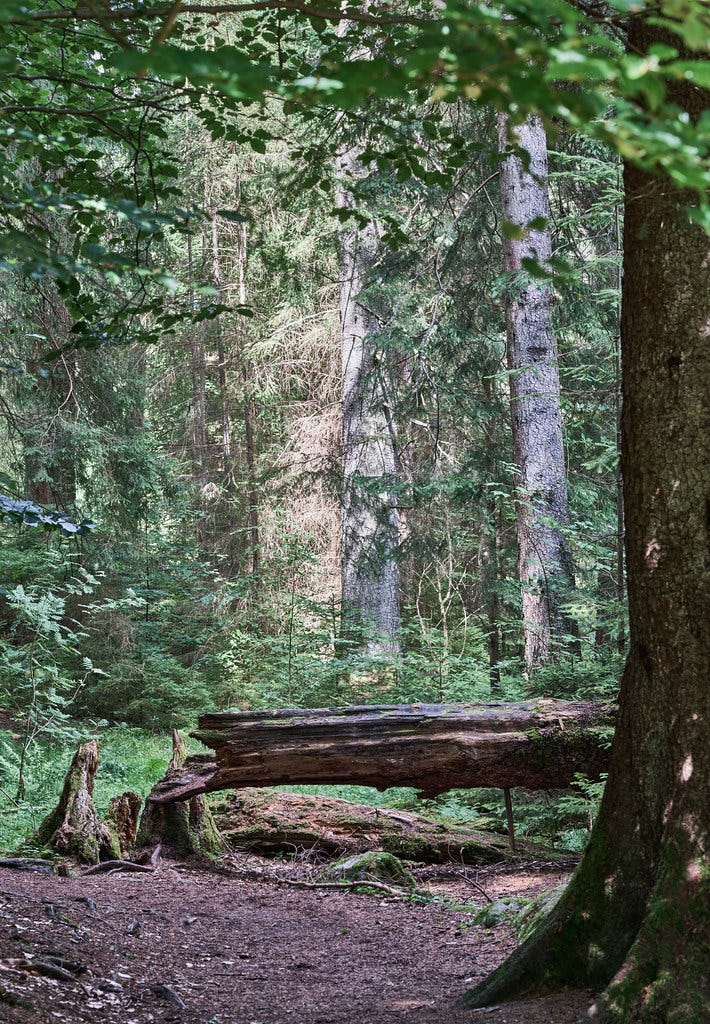Why Did I Choose to Study an Interdisciplinary Degree?
Caitlin Hall reflects on her degree choice at the Edinburgh Futures Institute
Choosing to study Interdisciplinary Futures has been one of the best decisions I’ve made. It’s allowed me to start analysing solutions to real-world problems alongside peers and tutors in a way I’ve not seen any other degree enable.
When I was deciding what to study at university, I went through several career options each week – struggling to find a single discipline that I clicked with. Having studied Maths, Biology, English literature and Spanish at A-level, I didn’t want to choose a degree that would isolate any of my academic strengths and only allow me to consider problems from one angle.
What I have loved about the course at Edinburgh University is that I’ve felt in control of what I’m doing and able to really delve into my own interests. In one module alone, the work I’ve submitted has ranged from an academic essay on teaching biodiversity in schools, to a creative writing piece from the perspective of an indigenous girl in the Ngorongoro National Park in Tanzania, to a presentation on how to implement a biodiversity festival in Scottish cities.
However, doing a degree like this means you sign yourself up for a pretty much daily question at university of ‘What degree do you do?’ - very quickly followed up by ‘So what actually is that?’
At Edinburgh, the core degree is formed of three modules: Global Challenges, Students As Change Agents, and Reflections. Global Challenges is centred around a key question – each year focusing on a different topic. Sustainability, conflict, global health and inequality are all covered in the four- year programme. Students As Change Agents is also heavily rooted in real-world problems, with students working in teams to produce a report and presentation to a charity on an issue they have identified.
After my exams at secondary school and sixth form, what I really wanted was a degree that not only taught you what to study, but why to study it. Interdisciplinary Futures is certainly on the way to showing students the importance and relevance of what they’re doing, not that they’re just working towards a degree so they can say they have one.
So how do you know if an interdisciplinary course is right for you?
There’s not necessarily a set type of person who I would say is ‘right’ for the course. I’ve got friends on my course with STEM backgrounds, humanities backgrounds and arts backgrounds. But what everyone seems to have in common is a drive to mix academic theory and practice with real-world problem solving, wanting to see the world and its perspectives rather than stay in a single lane, and believing we can make a positive impact on communities and the wider world.
Yet this is not to say an interdisciplinary degree comes without problems. At times, I have really struggled with the move away from a less traditionally academic course, and I did at one point consider switching to a language degree. I’ve definitely not been alone in this, with many of my friends on the course sharing similar thoughts on how different the course is to the type of education we’re used to. I think this is in part due to the way the current education system in the UK is formed – with a priority on grades and subjects over genuine skills learnt. Currently, there don’t seem to be any real options until higher education to choose an interdisciplinary approach to learning in academia.
While I have enjoyed challenging myself with such a new and unique course, the elective options for me have been integral for my first year in helping me feeling like I’m still progressing in a discipline. This has further allowed to build interdisciplinary knowledge, as it’s shown me how to combine such different subjects to look at an issue.
In my first year I’ve studied Spanish and Politics alongside Interdisciplinary Futures which has allowed me to broaden my perspective for some of the core modules. Our question this year has been regarding biodiversity. Having studied Hispanic culture in my Spanish course, this allowed me a wider global perspective on cultural implications of biodiversity, and studying politics informed my view about land ownership and conflicts within certain protected spaces.
The real question isn’t why I chose to study an interdisciplinary degree over a year ago. It’s why I’m continuing to choose this path. What I wanted from university was not just a traditional degree, but a sense of working towards something tangible. Interdisciplinary Futures definitely offers undergraduates the chance to do that. I hope that with future cohorts the degree will become more recognised and interdisciplinarity will have a strong position in higher education – and in fact education as a sector - and not just for those studying it as their main degree.
Caitlin Hall is an undergraduate student of Interdisciplinary Futures at the Edinburgh Futures Institute, University of Edinburgh.


